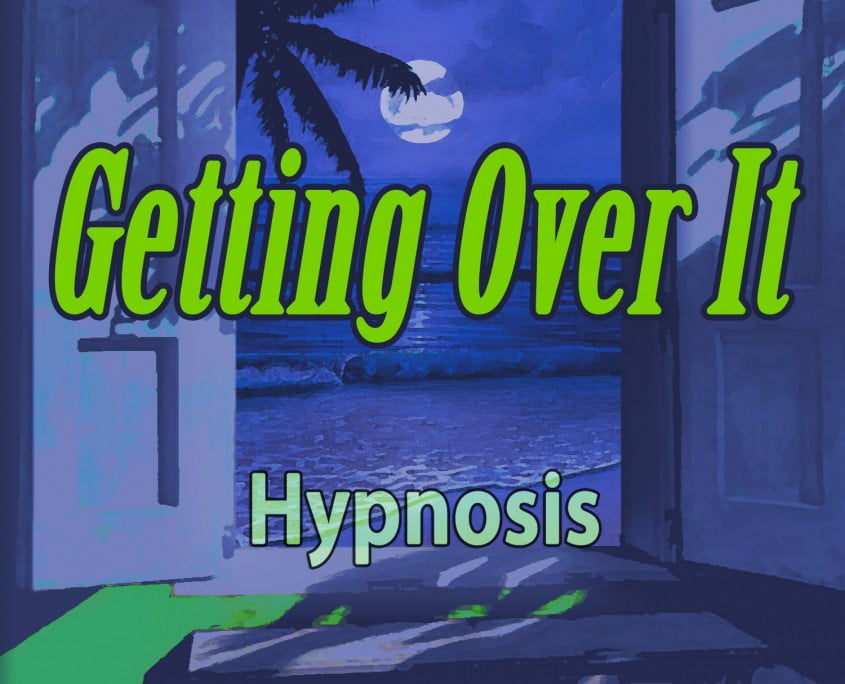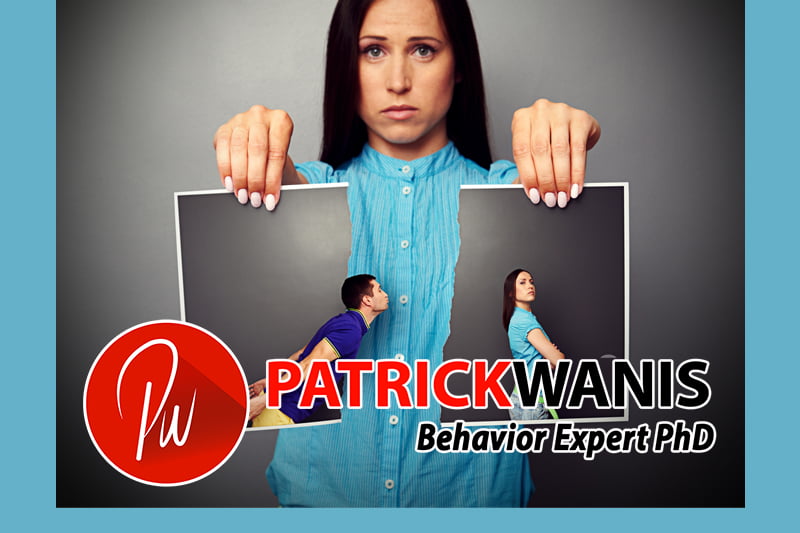In this week’s Success Newsletter, I would like to reveal the answer to the question that often tortures people: “Why did you do this to me?”
First a quick update:
“Intuitive Eating”
Did you know that at takes at least fifteen minutes for your brain to register that your stomach is full? And did you know that new studies reveal that when you diet and thus eat foods that you don’t like, you absorb a lot less of the nutrients? What does it take to become and stay healthy? Michael Pollan wrote in the New York Times Magazine, January 28, 2007: “Eat food. Not too much. Mostly plants. That, more or less, is the short answer to the supposedly incredibly complicated and confusing question of what we humans should eat in order to be maximally healthy.” Does that imply that we could or should use our intuition rather than mathematical formulas to guide us to healthy food? In other words, can our body direct us naturally to eat healthy foods that our body needs? And can intuitive eating result in losing weight and being healthy? Listen to my interview and conversation with Jane Bernard, intuition expert and author of the new book, “Maintain, Don’t Gain, 10 Tools for Staying Slim” as we discuss intuitive eating.
“The Top 10 Celebrity Meltdowns of 2010”
Watch FOX News channel this Sunday December 26th at 8:45 AM EST when I will be presenting my fourth annual list of the biggest celebrity meltdowns of the year along with expert analysis and insights into the motivation behind the behaviors.
Now, let’s talk about something that confuses and plagues people – “Why? Why did you do this to me?”
A couple of years ago, Dr. Phil was on the Larry King show and they were discussing human behavior and bad habits. Dr. Phil made a very interesting comment when he told Larry King that he couldn’t truly understand why people do things that they know are bad for them such as smoking, overeating or not exercising. That moment on television stands out because it is indicative and symbolic of an overall lack of understanding about human behavior – even by the so-called experts. When people ask me, “Patrick, what do you do?” I could easily answer with a title but instead I say I help people to change their behavior. I help people to change the way they think and feel so they can change their results.
What does it require to help people change their behavior?
The first required step is to understand why someone is behaving a certain way. And what most therapists, counselors and others fail to recognize is that we are controlled by our subconscious mind – our emotional mind – and not by our logical, conscious mind. We are emotional creatures. We all logically know what the right thing to do is, but our emotions take over and take charge. If we were all logical creatures controlled by will power we would all be eating healthy, exercising and emotionally balanced, free of the past and any negative emotions.
Thus, when Dr. Phil made the comment that he didn’t understand why people engage in certain behaviors, it begs the question: Do most of us have a real understanding of what motivates people? When working with clients, my focus is to seek out the very root cause of the problem. In other words, what is it that’s motivating you to do the things you do? What is it that has motivated you to think the way you think? What is it that motivates you to feel the way you feel or to act the way you act? The answer always relates to an experience, event or programming which thus creates emotions and beliefs about yourself, life and the world around you.

Often we fail to correctly answer “Why does the other person act and behave the way they do?” We mistakenly think that it is our fault.
Recently, Vanessa, a client expressed a variety of emotions over a relationship breakup. Her boyfriend of two years had cheated on her and now Vanessa was feeling violated, betrayed, stupid, humiliated, angry and vindictive. It is common that when we feel hurt we tend to want to lash out, retaliate and hurt the person who hurt us; we often want them to feel the pain that we believe they caused us. However, when exploring the emotions and beliefs that lie beneath the initial emotions of anger and revenge, I have uncovered, each time, that there is also the crippling belief that comes from the misguided answer to the questions “Why? Why did he do this to me?”
In almost every case of betrayal and cheating, the person who was the recipient of infidelity believes that the answer to “Why? Why did he/she do this?” is “It must be my fault…There is something wrong with me…I did something wrong…I am to blame…I am bad…I am not good enough.”
There are two key points here. First, yes, I do believe it is critical to try to gain an understanding and insight into the motivation behind the other person’s action. And when you find out the truth, you discover that it is never really your fault. In other words, he or she acts and behaves that way because of who they are. In the case of cheating, the motivation might be that he or she:
- Is afraid of commitment
- Suffers from low self-esteem (people with poor self-images and low self-esteem tend to be more promiscuous and tend to give into sexual advances because they are seeking approval, attention and validation)
- Is narcissistic and therefore cannot have or maintain a meaningful relationship
- One of his/her parents also cheated and they are copying the parent’s behavior
- Doesn’t believe subconsciously that they deserve to be loved and have a good relationship and thus, they sabotage the relationship
- Cannot communicate effectively
- Has given up on the relationship or is trying to pay the partner back for something he or she did
- Is selfish and rather than openly stating what he or she needs, he or she simply seeks to have her needs met in any way possible
This leads to the second point: you have no true control over the way that another person will respond or react to you. And this is why people suffer when they ask the question “Why did he/she do this to me?” That question insinuates that you control someone else’s choices, actions and decisions. That question implies that the other person responds to you only based on who you are and not on why they are. And, that question implies that you believe the other person should respond or act the way you would i.e. “I would never do that to anyone else, particularly the person I love.”
Every one of us is different and you are not to blame nor are you responsible for the way that someone chooses to respond to you or to whatever is happening in the relationship. This is the same disempowering belief that plagues and destroys women who are victims of abuse:
1. The woman believes that the violence was her fault
2. The woman has an inability to place the responsibility for the violence elsewhere
Read my article from July 2010, about Battered Woman’s Syndrome.
When we delve deeply and arrive at the place of real insight, understanding and wisdom, we learn that the answer to question “Why” is both simple and complex. The other person always responds to you based on who they are, and the answer to who they are might be complex – the result of what they experienced, their beliefs and emotions, and how they were programmed. When we understand that it is not about us and when we understand who the other person is inside, his/her motivations and that we do not control their reactions, then we can be set free and we can even arrive to the place of compassion and forgiveness.
Read also my Newsletter from December 2008, “It’s not about you”.
And if you are seeking to be set free from the pain of a breakup, betrayal or rejection, and if you finally choose to be free, happy and alive, excited about love and life then listen to and use my “Getting over it package”.
You can comment on this newsletter by visiting my blog or directly to this article.
If you have received this newsletter as a forward and would like to receive all of my newsletters please enter your email address on the home page at PatrickWanis.com.
I wish you the best and remind you “Believe in yourself -You deserve the best!”
Patrick Wanis Ph.D.
Celebrity Life Coach, Human Behavior & Relationship Expert & Clinical Hypnotherapist
www.patrickwanis.com
Anointed “The Woman Expert” by WGN Chicago, Patrick Wanis PhD is a renowned Celebrity Life Coach, Human Behavior & Relationship Expert who developed SRTT therapy (Subconscious Rapid Transformation Technique) and is teaching it to other practitioners. Wanis’ clientele ranges from celebrities and CEOs to housewives and teenagers. CNN, BBC, FOX News, MSNBC & major news outlets worldwide consult Wanis for his expert insights and analysis on sexuality, human behavior and women’s issues. Wanis is the first person ever to do hypnotherapy on national TV – on the Montel Williams show.

